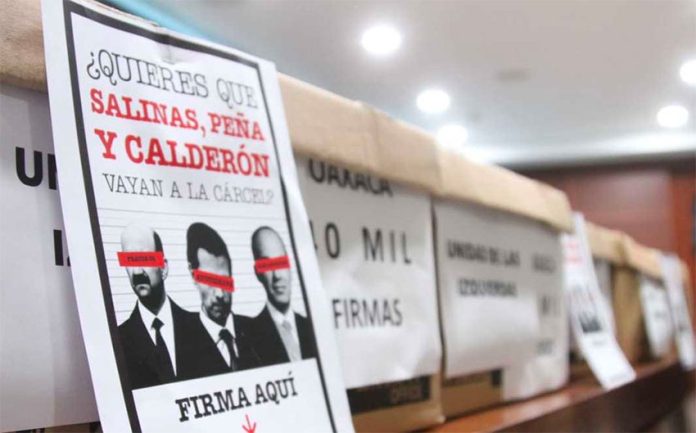Deceased critics of past presidents aren’t just turning in their graves – they’re also signing petitions.
The National Electoral Institute (INE) reported that 5,530 dead people were listed as signatories on a petition calling for a referendum that would ask citizens if past presidents should face justice for crimes they allegedly committed while in office.
Some of the deceased signatories died as far back as 1999, the INE said in a statement, adding that their names were likely taken from out of date electoral rolls.
The INE said the signatures of more than 400,000 other people were not counted for a range of reasons.
Among them: their electoral registration wasn’t current; they don’t appear on the electoral roll at all; they appeared on the petition twice; their political rights had been suspended because they’re in jail; and/or their personal details were deemed to be irregular.
The INE also said it visited the listed addresses of 850 signatories and was able to speak to 597 of them. Of the latter, 480 people confirmed that they had supported the petition but 117 said they had not.
All told, more than 2.5 million signatures appeared on the petition but only 2.1 million were deemed to be valid.
The latter number nevertheless represented more than 2% of everyone on the electoral roll, giving the petition enough signatures to ensure that the process to hold a referendum will proceed.
President López Obrador sent a request to the Senate in September to approve a national consultation in which citizens would be asked whether the five most recent former presidents should be held legally accountable for crimes they allegedly committed while in office.
Both the upper and lower houses of Congress subsequently approved the request.
The referendum proposal got the green light from the Supreme Court (SCJN) in early October, although it ruled that a consultation question cannot name the past presidents. Instead it must only refer to them as “political actors,” the court said.
Government critics have slammed the move to hold a referendum, saying that if there is evidence of wrongdoing by past presidents they should be prosecuted regardless of public opinion. Many said the SCJN decision serves as evidence that the president has co-opted the nation’s highest court.
Although he frequently blames past presidents for all manner of problems faced by Mexico, López Obrador has said that he won’t personally vote in favor of prosecuting his predecessors because he favors looking to the future rather than dwelling on the past.
By law the national referendum should take place in August but there is speculation that López Obrador will push for it to be run concurrently with the midterm elections next June. If the consultation is held on the same day as the elections, there will be increased focus on government corruption, which the current government says it is eliminating.
That could help López Obrador’s Morena party at the elections, at which citizens will vote for new federal deputies as well as municipal and state representatives.
The president could seek to justify holding the referendum on the same day as the elections by saying that it will save money.
The INE has estimated the vote will cost nearly 1.5 billion pesos, or US $74 million.
Source: Milenio (sp)
